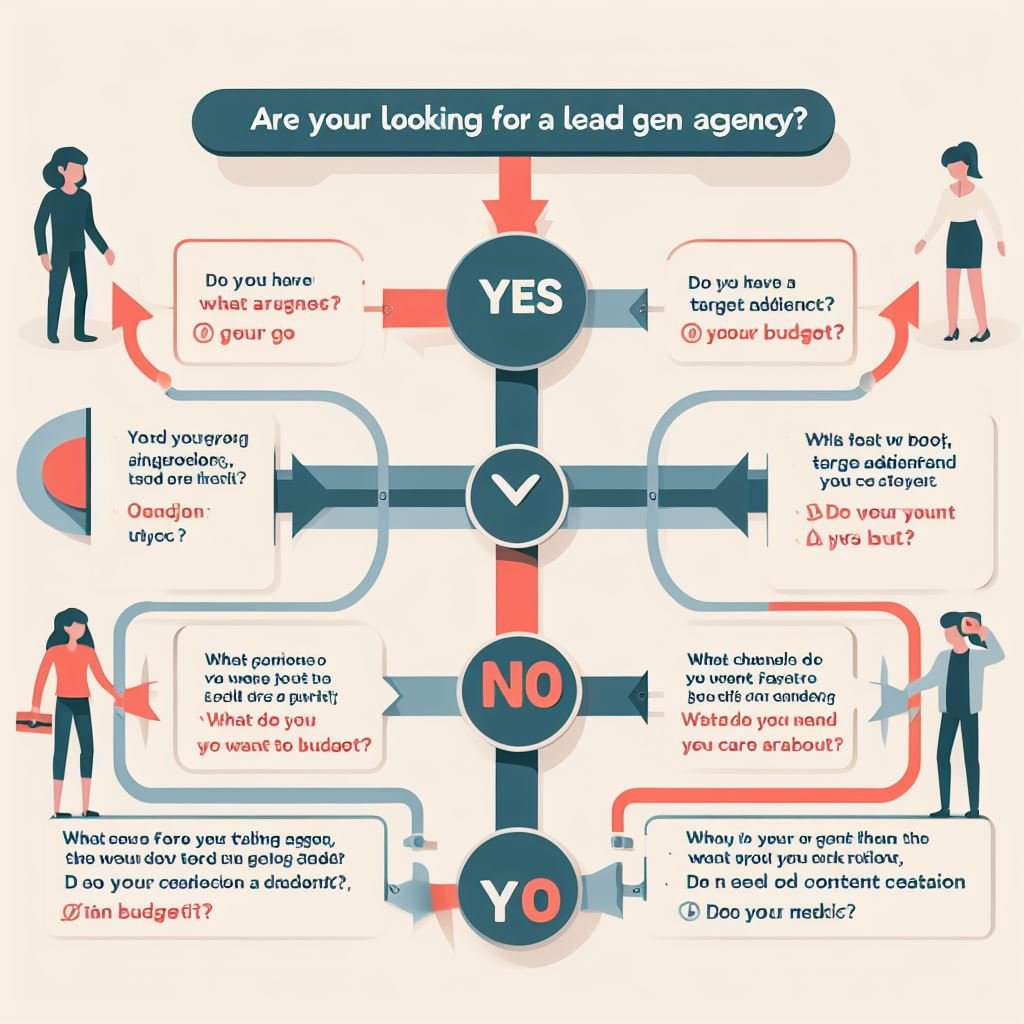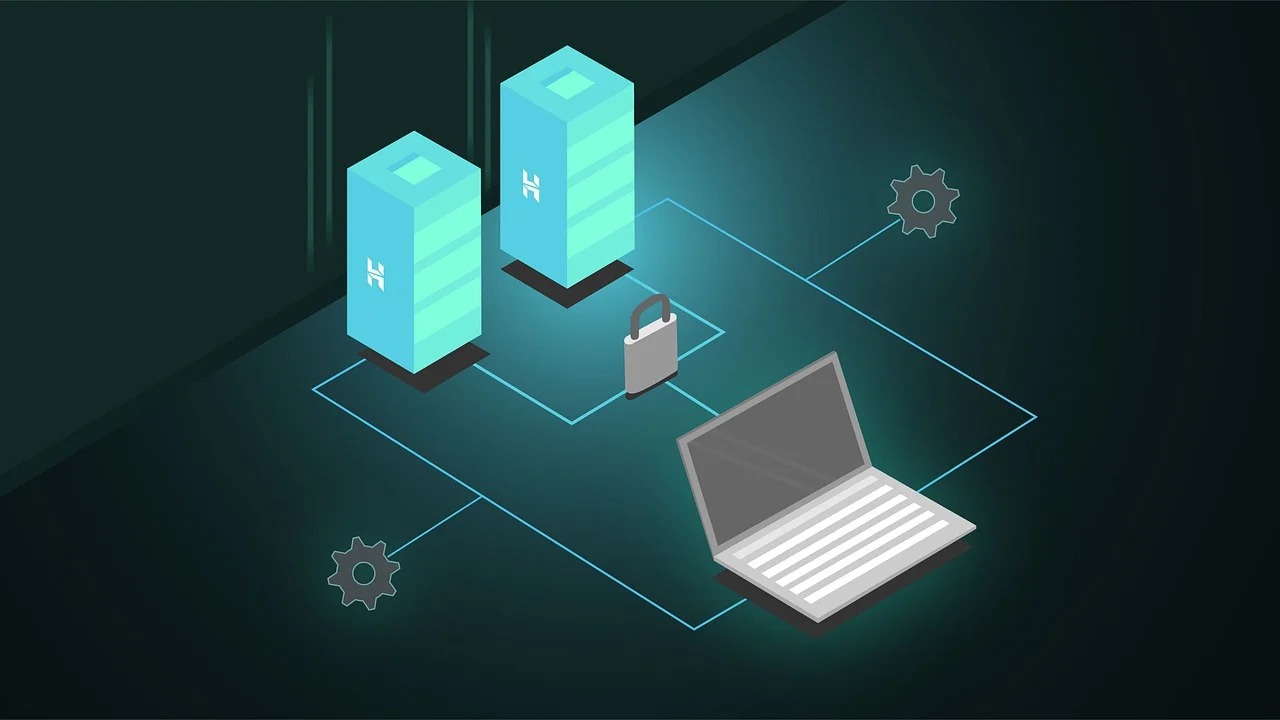Technology
How to Choose the Right Lead Gen Agency

In the dynamic landscape of modern business, the quest for high-quality leads stands as the bedrock upon which success is built. Regardless of the size or nature of your enterprise, the ability to identify, attract, and engage potential customers is paramount. However, the world of lead generation is intricate, requiring a delicate balance of strategy and expertise. This is where lead generation agencies step in as invaluable partners.
In this comprehensive guide, we’ll delve into the world of lead generation agencies and explore how to choose the perfect partner for your business. We’ll navigate the intricacies, unveil the essential criteria, and reveal the strategies that lead to lead generation success. So, whether you’re a burgeoning startup or a well-established corporation, let’s embark on a journey to uncover the art of selecting the ideal lead generation agency, one that can breathe life into your sales funnel and drive your business toward unmatched prosperity.
Defining Lead Generation Agencies and Their Role
What is a Lead Generation Agency?
A lead gen agency is a specialized entity that focuses on helping businesses identify, attract, and engage potential customers. Their primary goal is to create a steady stream of leads, which can then be converted into loyal customers. These agencies employ various strategies, including digital marketing, content creation, social media, and more, to achieve this objective.
The Role of a Lead Generation Agency
Lead generation agencies play a pivotal role in modern business strategies. They not only fill your sales funnel but also nurture leads into prospects and, ultimately, paying customers. Here’s how they do it:
- Targeted Outreach: They conduct thorough market research to identify and target the most relevant potential customers for your business.
- Content Creation: They create compelling content that attracts and engages your target audience, positioning your brand as a valuable resource.
- Multi-Channel Marketing: Utilizing multiple channels such as email marketing, SEO, social media, and paid advertising to maximize reach.
- Data Analysis: Constantly analyzing data and performance metrics to fine-tune strategies for better results.
The Need for Effective Lead Generation
Why Do Businesses Need Lead Generation?
Lead generation is the engine that drives sales and revenue for businesses of all sizes and industries. Here’s why it’s crucial:
- Business Growth: Without a consistent flow of leads, businesses can stagnate or decline. Lead generation fuels growth and expansion.
- Higher Conversion Rates: Leads that are properly nurtured are more likely to convert into paying customers, resulting in increased ROI.
- Cost Efficiency: Effective lead generation can reduce the cost per acquisition compared to traditional advertising methods.
- Competitive Advantage: Businesses that excel in lead generation stay ahead in the competitive market.
Advantages of Partnering with a Lead Generation Agency
Benefits of Hiring a Lead Generation Agency
Hiring a lead generation agency can be a game-changer for your business. Here are the key advantages:
- Expertise: These agencies are specialists in lead generation, possessing in-depth knowledge of strategies and tactics that work.
- Time and Resource Saving: Outsourcing lead generation allows you to focus on core business operations while experts handle lead acquisition.
- Improved Lead Quality: Agencies have the know-how to target high-quality leads, resulting in higher conversion rates.
- Performance Tracking: They provide detailed analytics and reporting to measure the effectiveness of lead generation campaigns.
- Scalability: Agencies can adapt to your business’s changing needs and goals, making them highly flexible partners.
Criteria for Selecting the Right Lead Generation Partner
Key Factors to Consider When Choosing a Lead Generation Agency
Selecting the right lead generation agency is a critical decision for your business. To ensure you make the best choice, consider the following factors:
Industry Experience and Expertise
The agency you choose should have relevant experience in your industry. They should understand the specific challenges and opportunities in your niche, allowing them to create targeted and effective lead generation strategies.
Pricing Models and Budget
Discuss pricing models and ensure they align with your budget and expected ROI. Different agencies offer various pricing structures, including retainer-based, pay-per-lead, and project-based. Choose the one that suits your financial objectives.
Lead Quality and Conversion Rates
Evaluate the agency’s track record in delivering high-quality leads that convert into customers. Request case studies and references to gauge their success in this aspect.
Reporting and Analytics
A transparent reporting system is crucial. Your agency should provide regular reports that show the progress of your lead generation campaigns, allowing you to track the return on investment.
Read more: https://mytebox.com/
Client Testimonials and Case Studies
Request testimonials and case studies from previous clients. This will give you insights into the agency’s performance, client satisfaction, and results achieved.
Interviewing Your Potential Lead Gen Partner
During the evaluation process, it’s essential to ask the right questions to ensure a good fit:
- What is your approach to lead generation?
- Can you provide examples of successful campaigns you’ve run in our industry?
- What tools and technologies do you use for lead generation?
- How do you measure the quality of leads generated?
- What is your process for optimizing lead generation strategies over time?
- How do you handle challenges or setbacks in lead generation campaigns?
Effective Strategies for Generating Leads
Common Lead Generation Strategies
Lead generation agencies employ a variety of strategies to capture potential customers. Here are some effective approaches:
- Content Marketing: Creating informative and engaging content that attracts and nurtures leads.
- SEO (Search Engine Optimization): Optimizing your online presence to rank higher in search engine results.
- Email Marketing: Targeted email campaigns to engage and convert leads.
- Social Media Marketing: Leveraging social platforms to reach a wider audience.
- PPC (Pay-Per-Click) Advertising: Paid ads on search engines and social media platforms.
- Webinars and Events: Hosting online or in-person events to capture leads.
Budgeting for Lead Generation
Cost Analysis and ROI Expectations
Before you partner with a lead generation agency, it’s essential to understand the associated costs and set realistic ROI expectations. While the cost can vary widely based on the agency, your industry, and your goals, here are some general insights:
- Retainer-Based Agencies: These agencies charge a monthly fee for their services, which can range from a few hundred to several thousand dollars.
- Pay-Per-Lead Agencies: You pay a fee for each qualified lead generated. Costs per lead can vary significantly depending on industry and lead quality.
- Project-Based Agencies: These agencies work on specific lead generation projects and charge a one-time fee.
ROI expectations should be based on your industry benchmarks and historical data. For example, a 5-10x return on your investment within 6-12 months is a reasonable goal for many businesses.
Tracking Your Agency’s Performance
How to Measure the Success of Your Lead Generation Agency
Measuring the performance of your lead generation agency is critical to ensure you’re getting value for your investment. Here are the key metrics to track:
- Conversion Rates: Monitor how many leads are converting into paying customers.
- Cost Per Acquisition (CPA): Measure the cost of acquiring a new customer through lead generation.
- Lead Quality: Assess the quality of leads and their alignment with your ideal customer profile.
- ROI: Calculate the return on investment for your lead generation campaigns.
- Lead Generation Funnel Metrics: Analyze metrics at each stage of the lead generation funnel to identify bottlenecks and opportunities for improvement.
Regularly review these metrics, and communicate with your agency to make necessary adjustments to optimize your lead generation strategy.
Conclusion
Choosing the right lead generation agency can significantly impact your business’s success. The right agency will understand your industry, offer flexible pricing, deliver high-quality leads, and provide transparent reporting. By following the guidelines outlined in this article, you can make an informed decision and find a lead generation partner that will contribute to your business’s growth and prosperity.
Technology
Best Employee Monitoring Software: Enhancing Employee Productivity

With remote work here to stay, ensuring employee productivity without micromanagement is crucial. Monitoring software has become a lifesaver for businesses, fostering accountability while maintaining trust. With so many options available, how do you choose the right one? Let’s explore the best tools, their benefits, and how they enhance workflows without making employees feel watched.
The Importance of Employee Monitoring Software
Gone are the days when managers could walk around the office to check progress. Remote and hybrid work models demand efficient systems to track productivity, protect sensitive data, and optimize workflows.
Personal Example: A friend running a digital marketing agency struggled to manage their remote team’s performance. After adopting monitoring software, they saw a 30% productivity boost as employees became more mindful of time usage.
The key to effective monitoring is balancing oversight with autonomy.
Best Features of Employee Monitoring Software
Here’s what sets top employee productivity tools apart:
- Work Scheduling and Productivity Evaluation
Effective software analyzes work patterns, not just hours logged. Key features include- Automated time logging
- Activity monitoring by application and browser
- Idle time detection
These tools help managers address underperformance without constant oversight.
- Periodic Screenshots & Activity Dashboard
Some employers prefer visual evidence of work, especially for remote teams. Periodic snapshots, compliant with privacy policies, enhance accountability. - Project Management Software Linking
Integration with tools like Trello, Asana, or Slack streamlines monitoring by consolidating data, preventing workflow fragmentation. - Privacy Monitoring and Law Compliance
Software must adhere to privacy regulations like GDPR, with encryption, access restrictions, employee consent, and role-based controls.
Best Employee Monitoring Software to Use in 2025
According to pcmag.com and industry experts, here are the top monitoring solutions:
- Controlio App
The Controlio monitoring software for employees offers a user-friendly interface, real-time activity tracking, and advanced productivity analytics. Features like keystroke logging cater to high-security needs, making it ideal for businesses seeking deep insights without overwhelming employees. - TimeCamp
Excels in time tracking and invoicing, perfect for freelancers and remote workers, with agile bonuses to boost engagement. - Hubstaff
Known for GPS tracking, ideal for field teams, and seamless payroll integration. - Teramind
Suited for large enterprises needing robust security, including insider threat detection.
Pro Tip: Consider your team size, industry, and whether you need passive tracking or active surveillance before choosing.
How to Implement Monitoring Without Killing Morale
The biggest concern? Employees feeling spied on. Here’s how to implement monitoring ethically:
- Be Open: Clearly communicate the purpose of monitoring (e.g., improving workflows, not punishing). Highlight how data enhances the work experience.
- Empower Users: Allow employees to pause tracking during breaks.
Personal Insight: A startup I consulted faced initial resistance to monitoring. Sharing data on fair work redistribution built trust, boosting efficiency.
The Future of Employee Monitoring
As AI evolves, expect features like
- Predictive productivity alerts to flag burnout patterns
- Stress analytics based on typing rhythms
- Integration with collaborative tools like Zoom for meeting insights
Monitoring is shifting toward enhancing the human experience.
Concluding Remarks: Ethically Refer To An Overarching Policy When Needed
Employee monitoring software isn’t about catching slackers—it’s about securing data, supporting teams, and optimizing workflows. Whether you choose the Controlio app, TimeCamp, or another solution, prioritize:
- Transparency
- Employee consent
- Actionable insights over control
Technology
Exploring VPS Hosting Solutions in Japan: A Comprehensive Guide

When it comes to reliable and high-performance web hosting, Virtual Private Servers (VPS) have emerged as a popular choice for businesses and individuals seeking enhanced control and flexibility. For those with a specific focus on Japan, VPS hosting in this region offers unique advantages. This article delves into the benefits of vps japan hosting, and how it can be the ideal solution for various needs.
Why Choose VPS Hosting in Japan?
Opting for a VPS in Japan can be particularly beneficial for several reasons. Firstly, having servers located in Japan can significantly improve latency and load times for users accessing your site from this region. This is crucial for businesses aiming to provide a seamless experience for their Japanese customers.

Additionally, VPS hosting in Japan often provides enhanced compliance with local data protection regulations. For businesses dealing with sensitive information or operating within the Japanese market, ensuring that data is stored and processed within the country can be a significant advantage.
Key Advantages of VPS Hosting in Japan
VPS hosting in Japan presents several notable advantages, particularly for businesses and individuals seeking to optimize their online presence.
Improved Performance and Speed
One of the primary benefits of choosing a VPS in Japan is the improvement in performance and speed. Since the server is physically closer to your target audience, data travels a shorter distance, resulting in faster load times and a better overall user experience. This can be particularly important for e-commerce sites, online services, and any platform where speed directly impacts user satisfaction.
Enhanced Security and Compliance
VPS hosting providers in Japan often offer robust security features tailored to local regulations. This includes compliance with Japan’s data protection laws and regulations, which can be crucial for businesses handling personal or financial data. Additionally, VPS hosting typically includes advanced security measures such as firewalls, DDoS protection, and regular backups, ensuring that your data remains secure and resilient against threats.
Scalability and Flexibility
VPS solutions in Japan provide the flexibility to scale resources according to your needs. Whether you experience a sudden spike in traffic or require additional storage, a VPS allows you to adjust resources without the need for physical hardware changes. This scalability ensures that your hosting environment can grow alongside your business, accommodating increased demands without compromising performance.
Choosing the Right VPS Provider in Japan
Selecting the right VPS provider is crucial to ensuring that you receive the best possible service. Factors to consider include the provider’s reputation, support services, pricing, and the specific features offered. Many providers offer tailored solutions for businesses of various sizes, so it’s important to evaluate your needs and choose a provider that aligns with your requirements.
In conclusion, VPS hosting in Japan offers numerous benefits, from improved performance and security to scalability and compliance with local regulations. Whether you’re managing a high-traffic website or handling sensitive data, a VPS in Japan can provide the performance and reliability needed to succeed in the digital landscape. For a deeper look into available solutions and providers, explore further resources through the link provided earlier.
By leveraging the advantages of VPS hosting in Japan, you can ensure that your online presence remains robust and efficient, catering effectively to your Japanese audience while maintaining high standards of security and performance.
Technology
The Future of Aerial Autonomous Navigation Systems

Autopilot systems have been a staple in aviation since the early 20th century, playing a crucial role in enhancing safety, efficiency, and comfort during flights. In recent years, Unmanned Aerial Vehicles (UAVs) have been equipped with even more sophisticated navigation and safety technologies.
But just how close are we to achieving complete autonomy in aviation? With the latest advancements in sensor fusion, computer vision, and deep and reinforcement learning, fully autonomous navigation systems for UAVs are within reach—once we overcome the remaining technical challenges.
5 Challenges in Developing Autonomous Navigation Systems for UAVs
Autonomous UAVs have immense potential across various applications, from urban package delivery and industrial asset inspections to border patrol and land surveying. However, one major hurdle preventing widespread adoption is the need for extremely reliable systems with minimal error margins. To achieve this, industry experts are focusing on solving the following five key challenges.
Dynamic Environmental Awareness
For UAVs to operate autonomously without endangering people or infrastructure, they must have continuous awareness of their environment. This includes understanding flight conditions and detecting obstacles in real-time. Modern drones already feature advanced sensors, such as HD cameras, LiDAR, and optical flow sensors. These data sources are processed by computer vision and navigation algorithms directly on the device, enabling drones to maintain environmental awareness during autonomous operations.
The Fly4Future team recently introduced INEEGO, an indoor inspection drone equipped with an autonomous navigation system. This drone can navigate through environments using only a partially mapped area, adjusting its route based on sensor data to avoid obstacles. INEEGO allows pilots to safely inspect structures like AC pipelines and carrier beams for signs of wear and tear with minimal collision risk.
Operating in GPS-Denied Environments
One of the significant limitations of UAVs has been their reliance on GPS for navigation. In situations where GPS signals are weak or disrupted—common in dense urban areas or during certain military operations—drones lose their ability to navigate. Furthermore, GPS signals can be jammed or spoofed, compromising the safety of autonomous flights.
Fortunately, alternatives to GPS are being developed. Bavovna, a US-based manufacturer, has created a hybrid AI-powered navigation system specifically designed for GPS-denied or compromised environments. Their flagship product is a low-cost, modular solution that integrates an onboard processing unit with pre-trained AI algorithms to deliver precise Position, Navigation, and Timing (PNT) data, which is crucial for autonomous operations. This system enables UAVs to complete complex missions autonomously, using only onboard sensors such as an IMU array (including accelerometers and gyroscopes), airflow sensors, a compass, and a barometer.
Battery Management
Battery capacity remains a significant challenge for drones. If an autonomous UAV runs out of power mid-flight and cannot land safely, it poses a serious problem. To address this, researchers are exploring various strategies for improving drone battery management.
For example, the NTIS Research Centre has developed an experimental mechatronic system for automatic drone battery management. Their Droneport system can autonomously swap out batteries on UAVs without human intervention. This compact and easily assembled robotic arm performs scheduled battery swaps on drones equipped with specialized battery holding cases, ensuring high accuracy.
Another approach under investigation is self-charging drones. Drones4Safety, a Danish company, has developed technology that allows UAVs to recharge using railway and power line cables. When a drone’s battery is low, its autonomous navigation system directs it to the nearest overhead line for charging, using data from GNSS and EGNOS, along with additional onboard sensors for precise detection and navigation. While initial field trials have demonstrated the feasibility of this approach, further work is needed to refine the system’s accuracy to avoid damaging power lines.
Autonomous Take-Off and Landing
Currently, drones require a pilot’s assistance for take-off and landing. However, for full autonomy, drones must be able to identify suitable landing sites on their own and ensure that the area is free of obstacles or people. This challenge calls for enhancements to current navigation capabilities and some hardware design modifications.
Evolve Dynamics is making progress in this area. The company’s Sky Mantis UAV is capable of fully autonomous landing, loitering, and maintaining zonal positions with high precision. The system relies on ground-based radar beacons that communicate with a Sensoriis airside radar mounted on the Sky Mantis UAV, allowing it to make decisions based on accurate positioning data.
A group of Polish researchers has also developed a lightweight deep learning vision algorithm to support autonomous UAV take-offs and landings. This algorithm has shown near real-time performance on modern embedded GPU devices and offers high safety and robustness in detecting human presence and estimating positioning errors. However, it has yet to be tested in real-world scenarios.
Reliable Connectivity
Even with autonomous navigation systems, UAVs will still require strong communication links with ground stations for tasks like localization and data exchange (e.g., streaming video feeds, receiving updated flight plans). The current communication range is limited to about 60 miles (35 km). Lower frequencies can extend this range but at the cost of reduced data rates and higher latency.
Software-defined networks (SDNs) are emerging as a potential solution to this issue. In SDNs, communication between the control layer and the data link layer is typically handled by the OpenFlow protocol, which allows the control of the network’s forwarding plane, including switch and router functions. SDNs also enhance packet delivery rates by optimizing network speeds and improving UAV network security.
The groundwork for fully autonomous navigation systems in UAVs is well underway. In the coming years, we can expect more of these technologies to transition from research labs to mainstream applications, heralding a new era of safe and autonomous aerial navigation.
-

 How To & Reviews3 years ago
How To & Reviews3 years agoWebsite Popular for HD Movies Download-1Filmywap
-

 Business3 years ago
Business3 years agoZee Keralam Shows, TV Serials & Programs List 2022 & 2023
-

 Health2 years ago
Health2 years agowellhealthorganic.com:easy-way-to-gain-weight-know-how-raisins-can-help-in-weight-gain
-

 Business2 years ago
Business2 years agoUnveiling the Enigma of Kado Thorne: A Comprehensive Guide
-

 Technology4 years ago
Technology4 years agoThe 5 Best Graphic Design Tools for Beginners
-

 Business3 years ago
Business3 years agoAdvantages When Playing Online Slot Gambling Games on the Right Site
-

 About2 years ago
About2 years agoThe Top 5 VMovee Alternatives for Watching Films and TV
-

 Health2 years ago
Health2 years agoA Guide to a Healthy Life with healthy life wellhealthorganic: Tips for a Holistic Lifestyle


